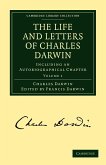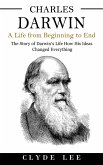James yearned to weave science and religion into a popular philosophy useful for the everyday life of everyday people of faith. He saw that many of them were defenseless in an increasingly agnostic, even atheistic culture. "Thousands of innocent magazine readers lie paralyzed and terrified in the network of shallow negations which the leaders of opinion have thrown over their souls," he wrote in 1882. To which he added, "If I, . . . like the mouse in the fable, have gnawed a few of the strings of the sophistical net that has been binding down [the human heart's] lion strength, I shall be more than rewarded for my pains." Were he to return, he would surely be even more unhappy with the leaders of opinion, but also with the responses of people of faith, who either seek refuge in untenable fundamentalist reliance on religious scriptures or else view science and religion as two wholly separate, independent spheres of knowledge. Building on three previous books about James's philosophy, as well as on three books about related topics, the present text will explain why no one professing to 'do science' in this third millennium can ignore the psychology behind all discoveries.
Hinweis: Dieser Artikel kann nur an eine deutsche Lieferadresse ausgeliefert werden.
Hinweis: Dieser Artikel kann nur an eine deutsche Lieferadresse ausgeliefert werden.





![Life and Work of Darwin [microform] Life and Work of Darwin [microform]](https://bilder.buecher.de/produkte/65/65551/65551739m.jpg)

![Charles Darwin [electronic Resource]: His Life Told in an Autobiographical Chapter and in a Selected Series of His Published Letters Charles Darwin [electronic Resource]: His Life Told in an Autobiographical Chapter and in a Selected Series of His Published Letters](https://bilder.buecher.de/produkte/66/66187/66187510m.jpg)
